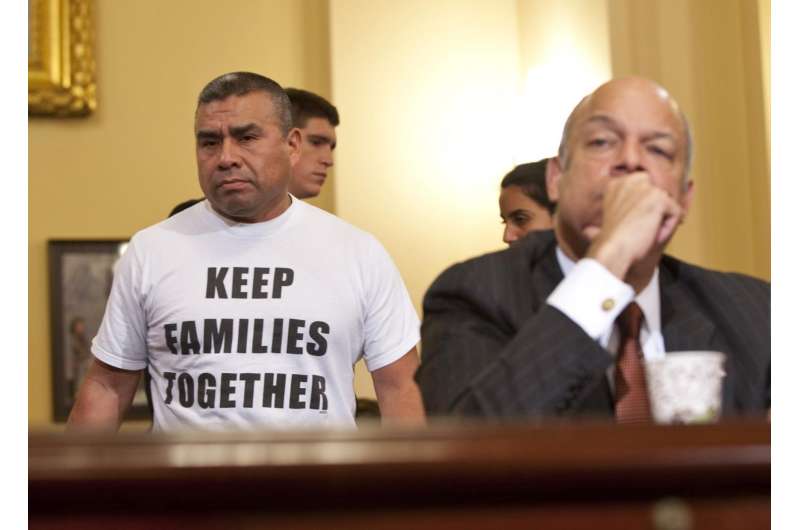Racial profiling of Latino immigrants influences families differently

Immigration policies focusing on racial profiling and criminalization of Latinos in the United States have direct implications on immigrants and their family members, many of whom are U.S. citizens, according to a study by a University of Kansas researcher who explores these consequences amongst mixed-status families in the Midwest.
Intersections between legal status and race can make the experiences of illegality different between U.S. immigrants from Latino indigenous and non-indigenous groups, said Andrea Gómez Cervantes, doctoral candidate in sociology. She conducted interviews with 67 members of mixed-status immigrant families and 18 months of ethnographic participant observation during 2016-2017, a period also coinciding with the presidential election.
"Given today's immigration enforcement increasingly rooted on racial profiling as a tactic to apprehend undocumented immigrants, indigenous-Latino immigrants, particularly those who have darker skin tones and shorter statures, are more easily targeted," Gómez Cervantes said. "To add another dimension, many indigenous-Latino migrants do not speak Spanish or English fluently, leading to difficulty in gaining access to important information and resources."
She will present her findings Sunday, Aug. 13, at the American Sociological Association's 2017 annual meeting in Montreal. The project was funded on a grant from the National Science Foundation, and the KU Institute for Policy & Social Research provided assistance with the award submission and will help to manage the award.
An estimated 4.5 million U.S.-citizen children live with at least one undocumented parent, Gómez Cervantes said, and in her research, she interviewed members of families in Kansas of both non-indigenous Latino ethnicity and of indigenous Mixteco, Tlapaneco and Mayan ethnicity.
"Kansas, although commonly overlooked as a state of immigration, has a long history of Latinx migration, starting with Mexican laborers in the early 1900s through their involvement in constructing the railroad. Since then Mexican families have settled throughout the state and built communities," she said. "Kansas is also the heart of both anti-immigrant and pro-immigrant policies and social movements. In this complex environment, families must find ways to navigate illegality, immigration enforcement and other forms of institutional violence in order to live their everyday lives."
However, a majority of existing research on Latino migration did not make a distinction between group differences.
"There are ample variations amongst Latino groups including race/ethnicity, gender, sexuality and class, amongst many other social dividers," Gómez Cervantes said. "Indigenous communities face ample marginalization and discrimination in their countries of origin, particularly in Mexico and Central America; therefore, upon arrival to the U.S. they may already be at a disadvantage."
Respondents in the study, particularly those from indigenous families, mentioned fear of the new government, language barriers, anxiety of participating in public spaces and anguish over social institutions, including law enforcement and education, as threats to their abilities for their families to successfully integrate into U.S. society.
The findings also illuminate the experiences of living in a mixed-status family—having members with various legal statuses in the same family ranging from undocumented, semi-legal, to citizens—in the United States can be a completely different experience for Latinos depending on if someone is from an indigenous or non-indigenous group. The interviews, though, also shed light on the everyday lives of mixed-status families and their contributions to Kansas communities, she said.
"Grounded in the experiences and voices of mixed-status families," Gómez Cervantes said, "I hope to elaborate and provide ideas to change current immigration policies and newly signed executive orders in order to help voice the concerns and fears of these very marginalized groups."
Provided by University of Kansas

















